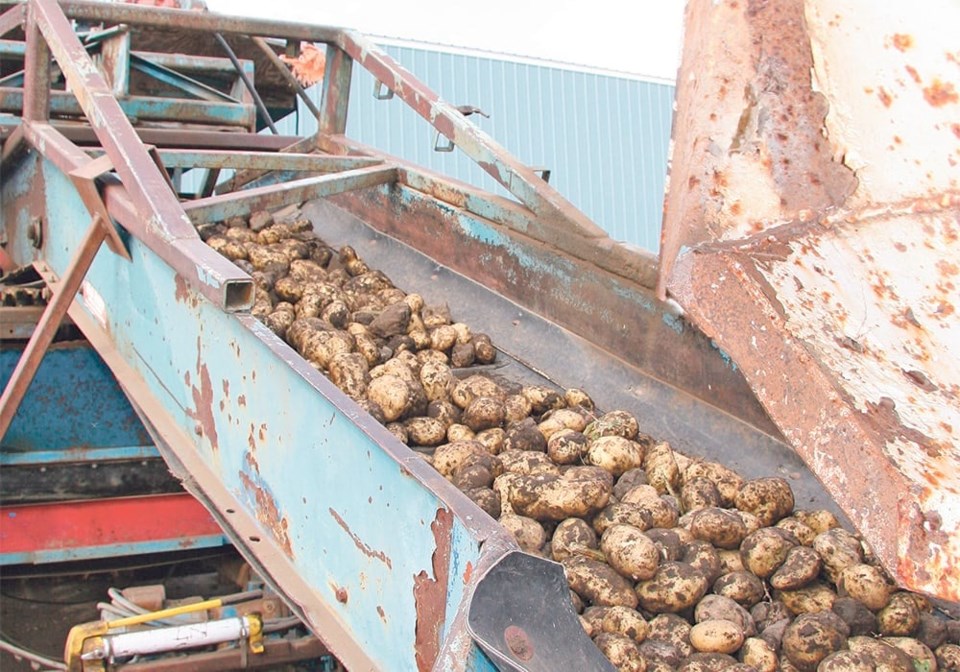WESTERN PRODUCER — Alberta produced the largest potato crop of any province in Canada this year, and its production increased by nearly nine percent from 2021.
However, it may not be enough to satisfy strong demand for potatoes in 2023.
“Alberta did manage the largest increase in potato production in Canada at 8.9 percent over last year,” United Potato Growers of Canada said in a Dec. 7 production report.
“(However), the resulting supply is one that may be short of what the processors need and would like to see for the upcoming months.”
Potato production across Canada increased about 0.8 percent from 2021, hitting 122,970,000 hundredweight, thanks partly to excellent weather during harvest.
However, the provincial story is a mixed bag.
Manitoba and Alberta saw production gains, but Prince Edward Island and New Brunswick produced fewer potatoes compared to 2021.
Manitoba farmers dug up 26.14 million cwt. of potatoes, up 4.9 percent from 2021, despite an extremely wet and cool spring that delayed seeding and emergence.
Production in P.E.I. and New Brunswick declined, dropping 2.2 percent and 6.6 percent, respectively.
Yields were better than average in P.E.I., but planted acres declined from 85,000 in 2021 to 82,700 in 2022.
Yields were also solid in Alberta, with growers recording an average yield of 376 cwt. per acre, the highest in Canada.
However, supplies of processing potatoes could be tight in Alberta and in other parts of North America.
French fry manufacturers often import potatoes from Idaho and Washington state when extra spuds are needed in Alberta because those regions consistently produce high yields.
Importing could be difficult this winter because potato acres and yields were below average in Idaho.
“This year, it was a very cool spring and the plants didn’t get the level of growth that we expected them to have by the end of June. At that point, the plants were about two weeks behind,” Ryan Wahlen of Pleasant Valley Potato in Aberdeen, Idaho, told FreshPlaza.
“Then, the months of July and August were extremely hot.”
The potato shortfall is bigger than Idaho.
In early December, Statistics Canada reported that the U.S. potato crop is the smallest in the last five years. American growers produced 397 million cwt. of potatoes in 2022, down from 420 million in 2020 and 450 million in 2018.
Contact [email protected]



